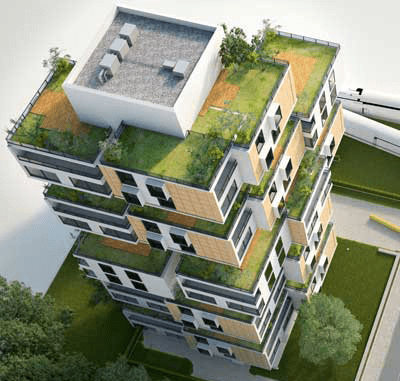Dear Colleagues,
The third edition of Energise conference, hosted by Alliance for an Energy-Efficient Economy (AEEE), CEPT Research and Development Foundation (CRDF), Indian Institute of Technology Delhi (IITD), and Indian Institute for Human Settlements (IIHS), will take place from 31st October – 4th November 2023, in Goa, India.
Energise is one of Asia’s most influential research-focused conferences with energy efficiency at its core and brings together energy efficiency professionals from research, policy, and businesses. Energise 2023 central theme is Lifestyle, Energy-Efficiency, and Climate Action. Energise 2023 invites original research papers under three broad panel categories: Buildings, Cities, and Governance and Markets. It is an excellent opportunity for professionals and beginners with academy/industry backgrounds to share their innovative ideas. Now, Energise 2023 is open for abstract submission.
You are invited to submit one or more 800 words abstracts through the link given to be considered for an oral presentation in one of the following three conference panels:

Advances in energy efficiency are crucial to design and ultimately decarbonise buildings. Policymakers and researchers are working to make significant progress towards a low-carbon future by setting 2030 as a pivotal year. To foster energy efficiency in buildings, this panel will address strategies, interventions, and practices that can promote better performance, experience, and quality of the built environment.
- Passive building and net zero energy building design, construction, and certification
- Role of NZEB in achieving net zero economy
- Innovative and impactful new construction strategies and technologies, encompassing embodied carbon and life cycle assessment approaches
- Prefabrication and modular construction practices
- Thermal performance of building envelope
- Performance-based utility incentive programs for new construction
- Benchmarking and Data disclosure policies in building codes
- Improving code compliance/enforcement practices at ULBs
- Tactics or strategies for state/local stretch code adoption
- Grid-Interactive Efficient Buildings (GEB), life cycle energy analysis, thermal comfort, EV charging, resource efficiency, and sustainability in next-generation building codes
- Energy-efficient HVAC design and O&M for commercial buildings
- Energy-efficient appliances
- Efficient, zero-carbon systems and intelligent controls for HVAC, electrical loads, and process loads
- Smart, innovative controls, energy management, and information system
- Mechanical equipment that improves energy efficiency while enhancing building-grid integration, resiliency, occupant comfort, and well-being
- Retrofitting existing HVAC systems after post COVID-19
- Low energy-intensive space cooling technologies
- IAQ/IEQ standards for ensuring human health
- Tackling the contradiction between building energy and IEQ codes
- Building design aftermath of COVID-19
- Implication of outdoor air pollution on building system and control design
- Designing for maximum thermal and visual comfort
- Decentralized/Personalized thermal comfort
- Designing and Constructing for an optimised IEQ Environment
- Monitoring and control of IEQ parameters in buildings
- Demand flexibility in buildings
- Grid-interactive technologies
- Decentralized renewable energy management
- Battery electric vehicle as a V 2 G enabler
- Business models and deployment strategies
- Demand response programme design and pilots
- Measurement and verification
- Role of smart meters
- Role of grid-interactive and demand flexibility in the decarbonising power sector
- Benchmarking and building performance standards
- Data collection, analysis and visualisation, and end-use energy consumption data
- Commercial/Residential/Multifamily benchmarking and energy data disclosure policies and practices
- Policy formulation to implement building benchmarking programme
- Privacy of energy data and the public good
A holistic approach is ideal for cities to make significant strides toward energy efficiency. For designing, understanding, and promoting environmentally sustainable and socially resilient cities, this panel will empanel themes focused on design and planning, urban data management, and critical infrastructure, which contribute to the effective integration of energy infrastructure with renewable resources in making a city, climate resilient and sustainable.
- Urban design/planning, regulations, legislation, certification, economics, and policies
- Smart city structure, ontology, and architecture
- Land-use planning for a smart, healthy, and resilient urban ecosystem
- GIS for resilient and sustainable Urban Planning
- Planning and design of low-carbon user-centric services
- Urban planning to improve air quality in cities
- Net zero green field development and retrofitting of existing building clusters into net zero communities
- Climate change mitigation and adaptation in urban environments
- Urban Heat Island impact, mitigation, and adaptation
- Big data, machine learning, and artificial intelligence applications and case studies
- Digital platforms, digital twin, cloud computing, and IoT solutions for smart cities
- Data disclosure and data privacy in Digital Cities
- Reliability and safety of cyber-physical systems
- Benchmarking healthy and sustainable cities
- Cooling-as-a-Service District heating/cooling in smart cities
- Water-energy nexus
- Waste to Energy generation
- Alternative/clean energy sources, energy distribution, distributed energy generation, and energy demand reduction/management
- ICT, smart grid, and intelligent infrastructure
- Smart, clean, healthy, and intelligent transportation systems and infrastructure
The best possible energy efficiency governance structures and a viable market to support the governance structures are essential to inculcate energy efficiency at the core of the development of a nation. This panel includes topics on robust policy frameworks addressing cross-cutting issues, strengthening energy finance and investments, and strategies, which are essential for generating sufficient demand and commitment towards sustainable energy use transition.
- Mainstreaming health and safety with energy efficiency
- Behaviour change and societal transitions towards a culture
- Mainstreaming adaptation and resilience with energy efficiency interventions
- Urban/municipal financing and scaling investments
- Incorporating equity and gender concerns into energy efficiency
- Energy efficiency and demand response
- Equitable building decarbonisation
- Mainstreaming equity and gender concerns into energy efficiency
- Voluntary carbon market/financing
- Environmental, Social and Governance (ESG) framework and reporting
- Local government or community-led energy efficiency and decarbonisation
- Industry or market-led energy efficiency and decarbonisation
- Energy efficiency led strategies to support climate policy and its deployment
- Capacity building of institutions and professionals
Instruction for submitting the Abstracts
- Log into the submission portal through the link provided below. You will be asked to create an account if you do not have one.
- Follow the steps to enter the lead author and optional co-author information.
- Enter an abstract title
- Select the panel and then the topic/subtopic for consideration. Panel description can be found on this page above.
- Type in in an 800 worded abstract by dividing it into the following categories
- Aim and Approach (Maximum 200 words)
- Key Contributions (Maximum 200 words)
- Preliminary Results and Conclusions (Maximum 200 words)
- Primary References (Maximum 200 words)
- In the main text, refer to a reference using IEEE style (e.g., [1], [2], [3])
- The referencing style should be in IEEE format
- Click “Save and Continue,” review all information and then click “Submit.”
Submit Abstract
Energise 2023 uses double-blind peer review. The authors are invited to submit one or more 800 words abstracts in one of the three panels described above. The authors will be invited to submit a full paper if the abstract is accepted. All accepted and presented papers will be published in the conference proceedings.
We look forward to meeting you at Energise 2023 in Goa, India.

 Bishal Thapa
Bishal Thapa





 Fred Sherman
Fred Sherman Sumedha Malaviya
Sumedha Malaviya Satish Kumar
Satish Kumar












 The three main global energy concerns of providing access to modern energy, enhancing the security of the energy supply, and minimising the impact of energy systems on the climate have an impact on both national and international energy governance. To develop solutions that address the many facets of these difficulties, however, a variety of actors and stakeholders must be included due to the complexity of the energy challenges.
The three main global energy concerns of providing access to modern energy, enhancing the security of the energy supply, and minimising the impact of energy systems on the climate have an impact on both national and international energy governance. To develop solutions that address the many facets of these difficulties, however, a variety of actors and stakeholders must be included due to the complexity of the energy challenges. Our transition to a future with lower carbon emissions depends heavily on buildings. They are our places of residence, rest, and employment; they also account for around one-third of the world’s greenhouse gas emissions and nearly 40% of the world’s energy usage.
Our transition to a future with lower carbon emissions depends heavily on buildings. They are our places of residence, rest, and employment; they also account for around one-third of the world’s greenhouse gas emissions and nearly 40% of the world’s energy usage.